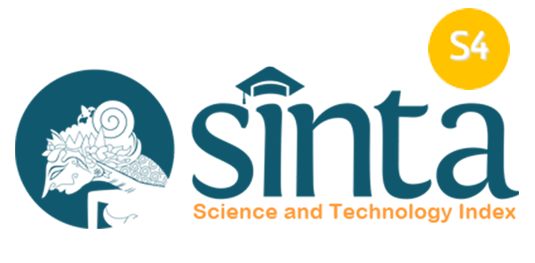Indonesian Public Response to Online Learnings During the Covid-19 Pandemic: An Analysis of Social Media
Abstract
Keywords
Full Text:
PDFReferences
Ahmad, N. K. (2019). Tantangan aplikasi sekolah pintar di kawasan Timur Indonesia. [the challenges of smart school application in East Indonesian areas]. Inter Komunika, 4(1), 44–57.
Basilaia, G., and Kvavadze, D. (2020). Transition to online education in schools during a sars-cov-2 coronavirus (Covid-19) pandemic in Georgia. Pedagogical Research, 5(4), em0060.
Cullen, R. (2001). Addressing the digital divide. Online Information Review, 25(5), 311–320.
Sciortino, R., and Saini, F. (2020). Towards a comprehensive narrative and response to COVID-19 in Southeast Asia. Social Sciences & Humanities Open, 2(1), 100058.
Habibi, A. (2020). Normal baru pasca Covid-19. Adalah, 4(1), 197-204.
Hadiyat, Y. D. (2014). Digital divide in Indonesia. Jurnal Pekommas, 17(2), 1-10.
Hoi, S. C., Sahoo, D., Lu, J., and Zhao, P. (2021). Online learning: A comprehensive survey. Neurocomputing, 459, 249-289.
Lancker, W. V., and Parolin, Z. (2020). Covid-19, school closures, and child poverty: A social crisis in the making. The Lancet Public Health, 5(5), e243–e244.
Lee, D. E., Parker, G., Ward, M. E., Styron, R. A., and Shelley, K. (2008). Katrina and the schools of mississippi: an examination of emergency and disaster preparedness. Journal of Education for Students Placed at Risk (JESPAR), 13(2–3), 318–334.
Liou, Y. H. (2015). School crisis management: A model of dynamic responsiveness to crisis life cycle. Educational Administration Quarterly, 51(2), 247–289.
McNamara, J., and Brown, C. (2009). Assessment of online discussion in work‐integrated learning. Campus-Wide Information Systems, 26(5), 413–423.
Mizumoto, K., Kagaya, K., and Chowell, G. (2020). Early epidemiological assessment of the transmission potential and virulence of coronavirus disease 2019 (COVID-19) in Wuhan City, China, January–February, 2020. BMC Medicine, 18(1), 1-9.
Pakpahan, A. K. (2020). Covid-19 dan implikasi bagi usaha mikro, kecil, dan menengah. [covid-19 and its implications for micro, small and medium enterprises]. Jurnal Ilmiah Hubungan Internasional, 18, 59–64.
Panigrahi, R., Srivastava, P. R., and Sharma, D. (2018). Online learning: Adoption, continuance, and learning outcome—A review of literature. International Journal of Information Management, 43, 1–14.
Rahmat, A. (2014). Gerakan sosial dalam aksi penyelenggaraan sekolah untuk anak miskin. [social movement in action to organize schools for poor children]. Masyarakat: Jurnal Sosiologi, 19(1), 27–56.
Rutherford, A. G., and Kerr, B. (2008). An inclusive approach to online learning environments: Models and resources. Online Submission, 9(2), 64–85.
Suharso, P. (2019). Pemanfaatan drone emprit dalam melihat trend perkembangan bacaan digital melalui akun twitter. [use of drone emprit in seeing the trend of digital reading development through twitter accounts]. Anuva: Jurnal Kajian Budaya, Perpustakaan, dan Informasi, 3(4), 333-346.
Zaharah, Z., Windarti, A., and Kirilova Galia, I. (2020). Impact of corona virus outbreak towards teaching and learning activities in Indonesia. Salam: Jurnal Sosial Dan Budaya Syar-i, 7(3), 269–282.
Zapalska, A., and Brozik, D. (2006). Learning styles and online education. Campus-Wide Information Systems, 23(5), 325–335.
Zhao, S. (2009). Parental education and children’s online health information seeking: Beyond the digital divide debate. Social Science and Medicine, 69(10), 1501–1505.
DOI: https://doi.org/10.17509/ijotis.v2i2.50226
Refbacks
- There are currently no refbacks.
Copyright (c) 2022 Universitas Pendidikan Indonesia

This work is licensed under a Creative Commons Attribution-ShareAlike 4.0 International License.
Indonesian Journal of Teaching in Science (IJoTIS) is published by Universitas Pendidikan Indonesia (UPI)
 Indonesian Journal of Teaching in Science
Indonesian Journal of Teaching in Science



